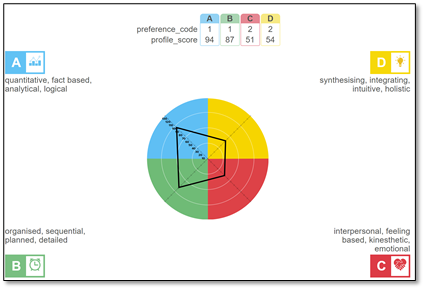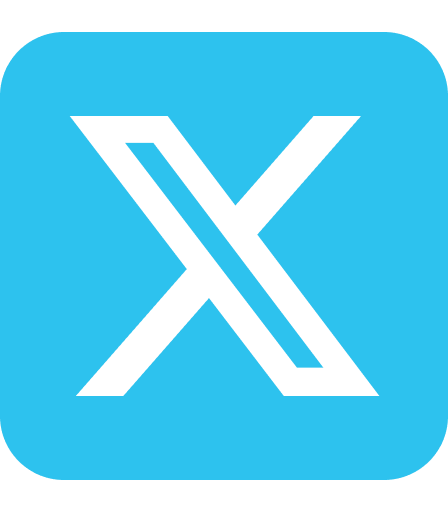In March 2020 I joined Herrmann, a 100% remote company. It was exciting but also a little bit daunting as I have never worked for a remote company before. Taking into consideration that I am based in South Africa while the leadership team and most of my colleagues are based either in the US or the UK, it all felt very new to me, and I really did not know what to expect, especially when it came to what remote onboarding would be like.
Just as Herrmann has new talent goals, I also had some goals to accomplish for the onboarding process of my own. I wanted to make sure I had a mutually beneficial experience within a customer- and employee-centric organization.
An Overview of the Herrmann Remote Onboarding Process
Herrmann has a comprehensive 90-day talent onboarding program which follows our Whole Brain® Model which depicts the four different thinking preferences.
Let’s look at my thinking preferences, I am a 1122 thinker, my primary preferences lie in Quadrant A and B – I am very logical, I analyze everything (I spend way too much time in my head) and I like having a detailed plan in place which is well organised.
With that said, one of the important things for me was to be given all the information and processes I needed to understand this new way of working right from the get-go. I kept thinking, “There are so many new things to learn, what is important and why, how will I do my job, who will I engage with.”
Given my cognitive diversity profile, this was a natural way for me to approach my first week of work. It is just how I think.
And so far, Herrmann has and is continuing to tick all the boxes addressing my concerns and then some!

Personalized Onboarding for My Thinking Preferences
Keeping my thinking preferences in mind, here are some of the things that were important to me and how Herrmann helped me successfully get through my first remote onboarding experience.
The first week was packed with loads of information and meetings.
I wanted to know exactly who and when I should be meeting someone, and I received a detailed schedule that included who I would meet with, with times and topics outlined for each day. This allowed me to plan accordingly and be organized.
Throughout the week I was provided with other general information I needed, the company history and overview, our core values, who’s who in the company, terminology, policies and procedures, where I could find support and resources, tools we use for communication like Slack and a deep dive into Whole Brain® Thinking and so much more.
Observations and Thoughts
A few things really stood out for me as a new employee:
- Time was spent to prepare me for what it means to work in a remote environment. I knew what was expected of me, and I was given some tips and tricks on how to communicate, collaborate, and continuously engage.
- I was informed about the goals and OKRs of the company. I could quickly see that mutually beneficial partnership I wanted and how our goals aligned.
- I started meeting colleagues with an informal virtual coffee on the first day. This is great because when you start having meetings down the line, you already know so many people and it is not uncomfortable. This was also a good opportunity for me to stretch into the red interpersonal quadrant.
- We did an “Ask Me Anything” exercise on Slack. This is where I introduce myself, tell my new colleagues a little bit about me and they have the opportunity to ask me anything, a very nice icebreaker.
- There were lots of self-directed learning opportunities – like the ability to watch previously recorded company meetings. This is such a valuable resource as it made me aware of so much.
Most important, I was familiarized with our Core Values, which serve as the foundation for everything we do at Herrmann. This gave me an instant understanding of the culture and how important our clients and employees are, and it reinforced that I made the best decision to join Herrmann.
Not only did the onboarding process take my individual cognitive diversity into consideration, it also supported stretching into all thinking preference quadrants. It gave me as the new employee an opportunity to understand and be able to leverage my own diversity of thought to become a successful member of the team from the start.
This post was a contribution from one of the Herrmann team, Wendy Schoeman, Client Success Manager. If you're interested in more info about how Herrmann has found success as a fully virtual workplace, take a look at our other blog posts on remote work.









